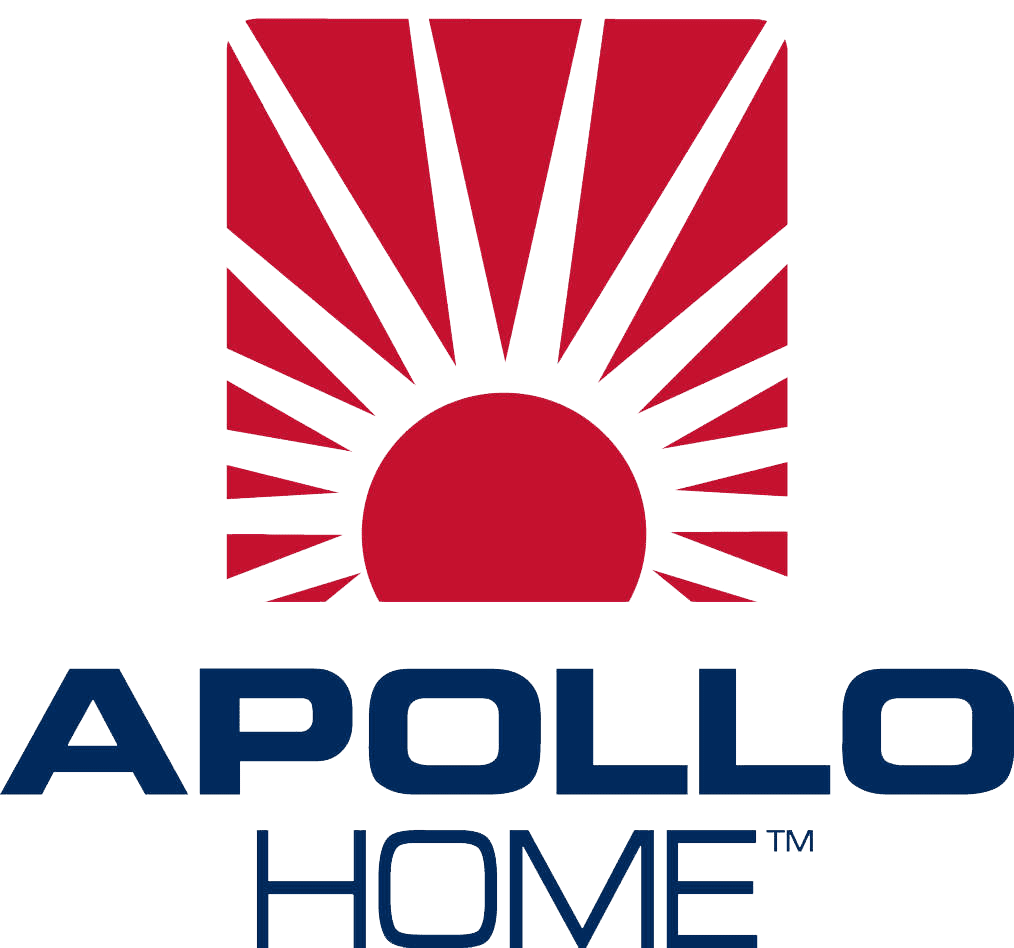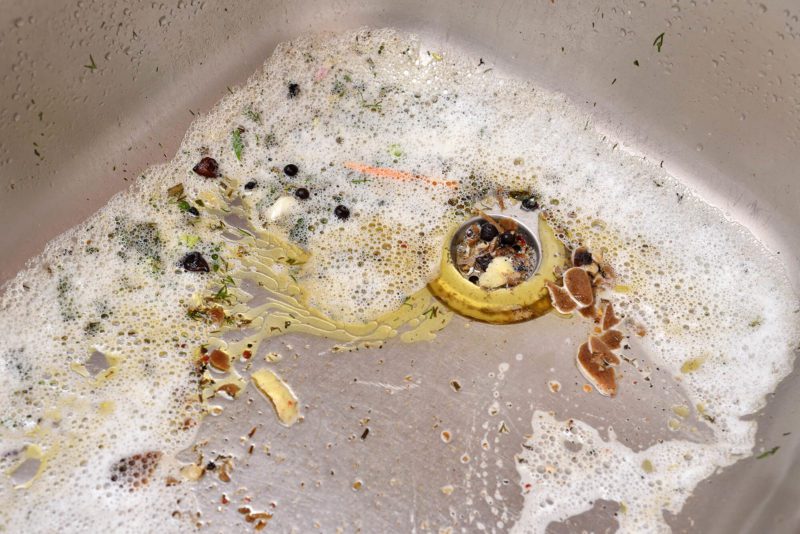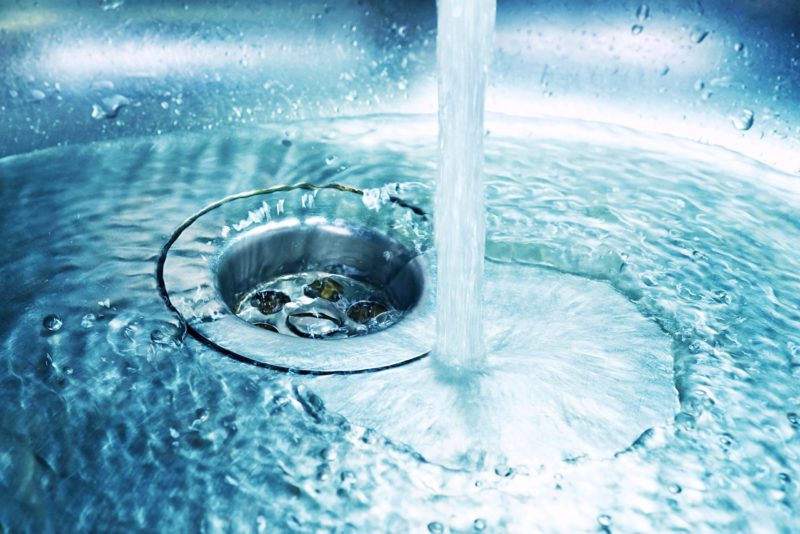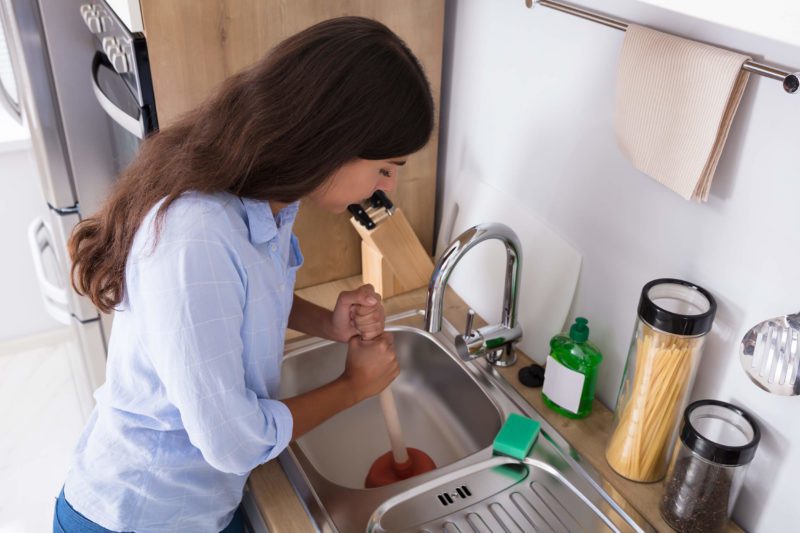Blog
10 Things That Should Never Go Down the Drain
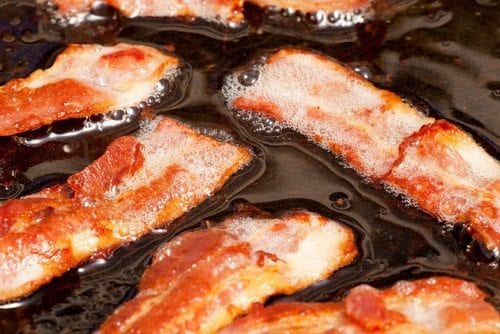
Drains are a critical component of your plumbing system, and while they aren’t delicate, they do require proper care. In order to protect your drains, pipes, and drinking water, there are a lot of things that should never be put down the drain.
As our lives get busier and busier, we find ourselves looking for shortcuts that seem to save time, effort, and money. But when it comes to drains, shortcuts will typically cost you a lot of time and even more money if you ever need to get them professionally unclogged.
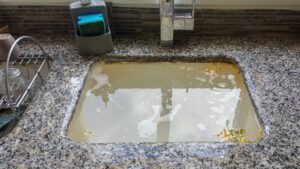
We’ve all been there–in a rush trying to get dinner cleaned up. We dump the grease, rice, or pasta in the sink, trying to tidy up quickly. But shortcuts now will lead to expensive and time-consuming plumbing work later. It’s a lot simpler and less expensive to avoid putting things that don’t belong down your drains.
Below, we will review a few of the most common items that should never be put down the drain.
1. Fat, Oils, and Grease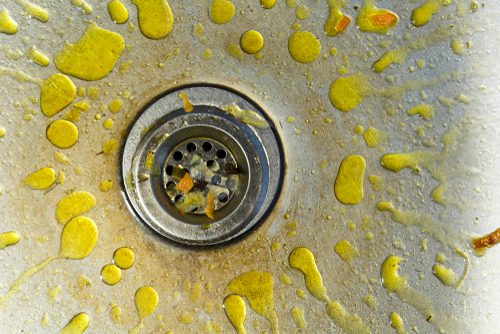
According to the EPA, fats, oils, and grease (FOGs) are estimated to be a root cause of an incredible 47 percent of clogged drains in the USA. They may go down the drain as a liquid, but as they cool down, they solidify. FOGs act as sticky glue that grabs onto other waste pushed down the drain to form clogs.
The best way to take care of FOGs is to scrape as much as possible into an old jar and let it solidify, then toss it with your regular garbage. Wipe out any remains in your pan with a paper towel.
2. Coffee Grounds
Many homeowners assume that coffee grounds are small enough to easily be flushed down the drain without a problem. In reality, they collect at the lowest point in your pipes and cause blockages. Plumbers agree that coffee grounds are among the most likely candidates for a kitchen sink blockage.
Instead of putting coffee grounds down your kitchen sink, you should dispose of grounds in the trash can.
3. Paper Products
Never put paper towels, cotton balls, produce stickers, or other paper products down the drain. These materials may be biodegradable, but they are not designed to degrade in a drain. Instead, paper towels absorb water, swell up, and cause blockages. Produce stickers have sticky glue that causes them to stick to the pipes and collect other waste as it passes by.
4. Rice and Pasta Products
Rice and pasta don’t disintegrate in your pipes. Instead, they swell up and cause clogs. The more that accumulates, the larger the swelling and the more the pipes are clogged. Scrape as much pasta off your plate into the regular trash or compost bin as possible.
5. Hair
Hair isn’t a surprise. It is one of the most common causes of tub and bathroom sink clogs. Place a hair strainer over your drain to collect hair before it can go down the drain and cause problems.
6. Epsom and Bath Salts
Many homeowners ask if Epsom and bath salts are bad for or cause clogs in drains. Look at the label of your Epsom and bath salts and see if it specifically says whether it is fully dissolvable. If the label does not explicitly say it will dissolve fully, you should assume it will not. Keep the salts in a tight weave mesh so that you can easily remove them from the tub.
Is Epsom and Bath Salts Bad for Pipes?
Generally, a little bit of salt is good for pipes, helping kill bacteria and clean out pipes. Many homemade pipe-clearing mixtures use salt. Salt can, however, cause corrosion if used too frequently. Those living on the coast know saltwater corrosion is a big deal. Salt does also add just the tiniest bit of abrasion as well. Dispose of excess salt by throwing it out with the normal garbage.
7. Eggshells, Corn Husks, Onion Skins, Etc.
You may have heard old wives’ tales about how eggshells will sharpen your garbage disposal blades. This tale is absolutely false; you should never put any hard or tough organic matter down the drain. Put it all out with the normal trash, or consider starting a compost pile for a more eco-friendly way to dispose of organic matter.
8. Cat Litter and Other “Flushables”
Even if the label says “flushable cat littler,” it is not. Don’t believe this misleading marketing. Cat litter is literally designed to absorb liquid, and it will swell up in your drains. Being heavier than water, cat litter sinks to the lowest point in your pipes and stays there.
Additionally, despite what some labels may claim, flushable wipes are not flushable. Toilet paper is dry and designed to break down in water. Flushable wipes are wet and don’t break down in water. You shouldn’t flush feminine hygiene products either.
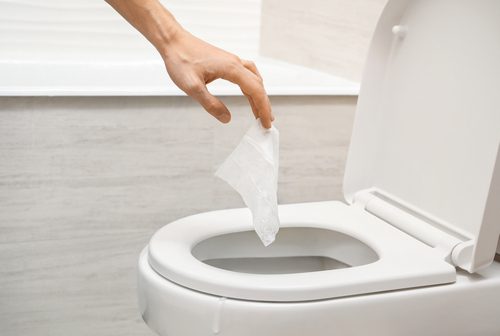
9. Nail Polish Remover, Solvents, and Paint
Nail polish remover and solvents are bad for your plumbing’s rubber seals and pipes. It causes breakdowns in the rubber and accelerates damage to the pipes. Paint will dry on the inside of your pipes, slowly choking off more of the pipe at a time.
Additionally, these products add potentially dangerous chemicals to the water supply. While the city’s wastewater management department does filter out our wastewater, a lot of these chemicals slip through the filtration processes and end up in our lakes and streams. These chemicals are bad for the environment and humans when they end up back in our water or food supply.
10. Caustic Drain Cleaners
Don’t put dangerous chemical drain cleaners down your pipes. Strong drain cleaners with sodium hydroxide or other chemicals may destroy your pipes and cause much bigger problems than slow draining.
These cleaners create a lot of heat and cause chemical reactions while eating organic food and grease, which damages your pipes. Try our 8 Steps to Unclog a Drain if you have a clog problem.
What Is Safe To Put Down The Drain?
With so many items on the “no” list, what is actually safe to put down the drain? It’s best to stick to the basics: water, organic liquids (milk, for example), human waste, and toilet paper. Everything else should go in the normal trash or be taken to a hazardous waste facility. If you need help getting a drain unclogged in Cincinnati, call Apollo Home.
Bonus Tip: never put medicines or pharmaceuticals down the drain. A few decades ago that was what we were told to do. However, this has dramatically affected ecosystems, wildlife, and drinking water. These chemicals cannot easily be filtered out of the water, and studies have shown that these medicines are widely traveled.
